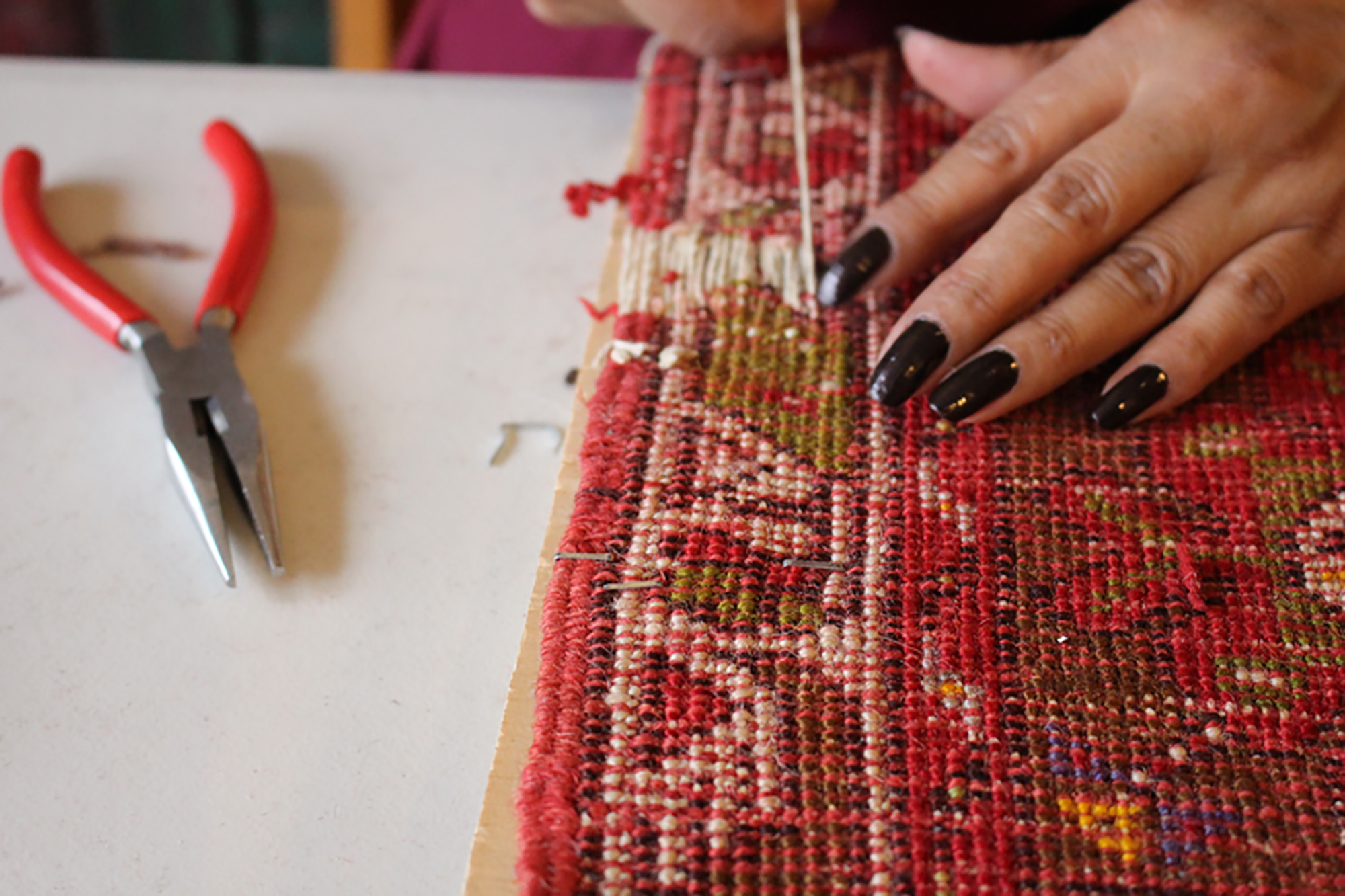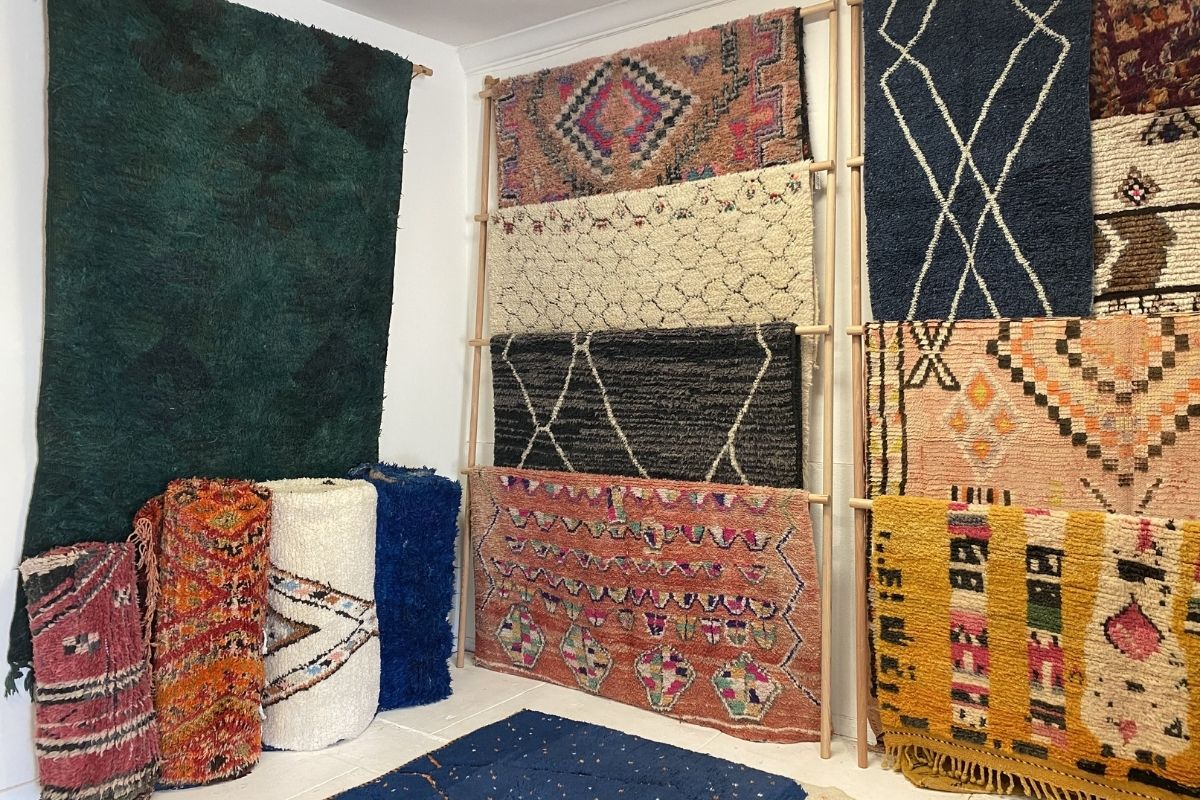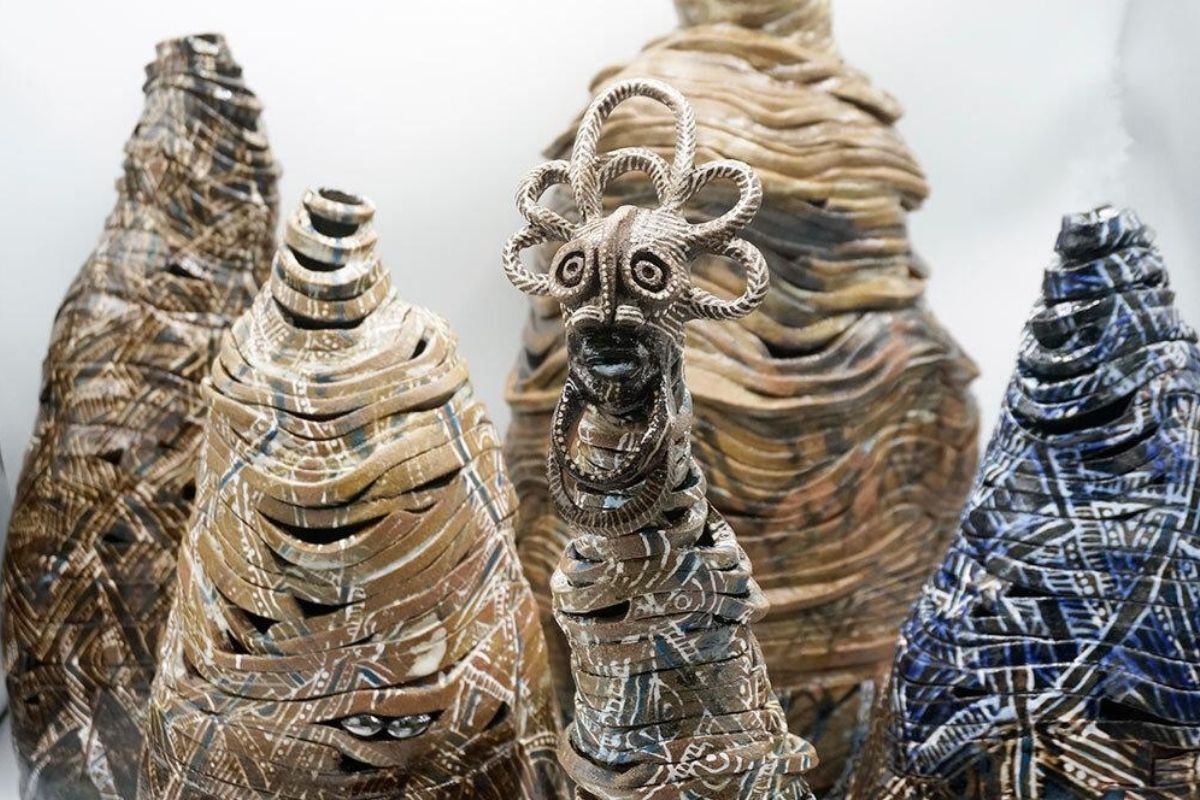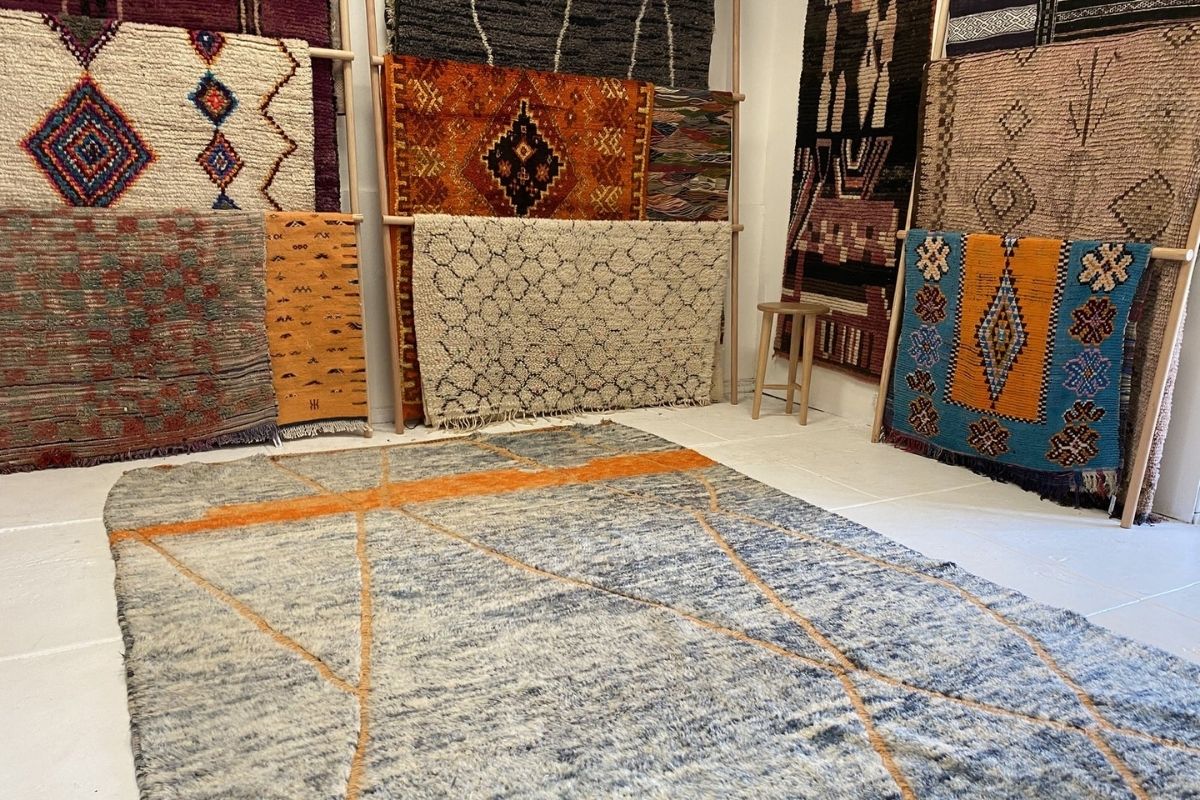Heirloom Rugs: On building the Ecosystem for Rugs, Textiles, and Art Communities
Mar 3, 2021
I first met Zach Zaman, the owner of Heirloom Rugs, shortly after I started Kantara. I stumbled across his booth at the Brooklyn flea and we instantly dug in on everything related to rugs, their heritage, and the future of the craft. I had just moved to New York and I was eager to make connections with fellow rug connoisseurs.
Zach's passion for the rugs ran deep and his knowledge was wide enough to encompass all of the different styles of rugs, from Persian to Turkish rugs and everything in between. This was 2010 and, at that point, very few people were selling Moroccan rugs. Most of the rug dealers I met fit the stereotypical profile of what you would expect a rug dealer to be. It wasn't often that you found a younger person that had both the passion and the years of experience under their belt. From that first chance encounter, it was clear that Zach had both.
When we first met, I was researching old school Rug Societies for an article I was writing on the history of Moroccan rugs. I learned about the role these rug societies played in expanding access and information about collectible rugs throughout the United States. I remember musing to Zach, what if we started our own modern-day Rug Society, as a way to foment a sense of community among the younger generation of rug dealers.
While our rug society never came to fruition, it turns out you don't need one to share the rug love. As Zach puts it, he is invested in "building the ecosystem" among the textile and rug community. That is abundantly clear in everything he does. As luck would have it, when we sat down to chat before writing this feature, I learned that he recently joined the Hajji Baba club, the oldest US based rug society devoted to the study of oriental carpets and antique textiles-- congrats, Zach!
As the years went on, we would connect on various projects. One time I was producing rugs for the Bryant Park Hotel's Célon Lounge. I had already moved to LA and Zach helped source and sew the rug pads for the hotel's custom Moroccan rugs. Another time, I got a request from a client looking for a 16' x 16' rug, which is a very specific size, not to mention much larger than most Moroccan rugs I encounter. Again, Zach was able to step in with timely and relevant options.
Continue reading below for our Q&A with Zach where we talk about the evolution of Heirloom Rugs and how he bridges the gap between contemporary artists and traditional textiles through his Contemporary @ Heirloom project.

Heirloom rugs “works to cultivate a deeper understanding and appreciation of handmade rugs.” Through collecting, trading, and dealing handmade rugs, they are able to “to keep this ancient tradition relevant to this generation and the next.”
In a celebration of the connection between traditional and modern rug making, Heirloom periodically features the work of different contemporary textile artists who make one of a kind pieces. Their current featured artist Emma Welty incorporates her Armenian heritage and vast knowledge of textile/weaving history into her impressive, handwoven art. Other textile artists previously featured in this project include: Caroline Kaufman, Emma Redmond, Melissa Joseph, Jessica Vitucci, and Andrew Boos.

Heirloom also selects a “Rug of the month,” where they highlight different rug styles from all over the world– from Armenian Kakavik rugs, to Navajo Yei rugs, to High atlas Moroccan Ait Ouaouzguite rugs. This project honors the international nature of the textile arts, and demonstrates the many ways in which different people and cultures have specialized this age-old art practice. After all, that’s what is so beautiful and special about handmade rugs–– the stories they tell and the traditions they pass down.
Learn more about Heirloom Rugs
Click the button below to learn more about the story of Heirloom Rugs! Check out the rest of their website for more on services and resources.
Learn moreQ&A with Heirloom Rugs owner, Zach Zaman
Kantara: What has been your favorite part of the Contemporary @ Heirloom project?
Zach: "I love that we can engage with living artists. We get to learn what drew them to textiles and fiber in the first place and how their practice is evolving. It is much different than the older rugs where you can only imagine a dialogue with the often anonymous weaver. Understanding the artists perspective really connects the past and the present. Of course there are distinctions between the two there is still a sense of continuity. Overall it allows for a deeper understanding of the labor and expression of this tradition."
Kantara: What’s next for Heirloom Rugs? Any plans on expanding, new developments, etc?
Zach: "My aspiration has always been to build this business like an ecosystem with many moving parts that interact with one another more or less organically. We are constantly planting seeds and incubating in this ecosystem. The contemporary project was important in opening up new pathways forward. I have some ideas that we are experimenting with that combine contemporary textile work with older pieces. It is still very fluid and early stage but we hope to release some pieces from this project later this year"

Kantara: How/where do you source new rugs, particularly the especially rare ones?
Zach: "Most of our rugs are actually sourced domestically in the United States. Since our primary focus is vintage and antique and most of those rugs were originally produced to live in the US and Europe. Rugs come to us in a lot of ways. Most weeks we will receive emails or a visit from someone looking to sell a rug they inherited or no longer have a need for. We have a very active cleaning and repair business which helps with sourcing rugs too. Over the years we have established relationships with different pickers who range from people who run estate sales to taxi drivers to demolition companies. There is a lot of mutual trust to take into account a fair retail price and then offer a fair wholesale price."
Kantara: How has the rug buying/trading/selling industry changed since you were a kid in your father’s shop?
Zach: "The landscape has changed dramatically. The rug trade was much more insular in the past. More of an old boys club. Information and access to rugs was more controlled and a lot of trade was conducted in Persian. Over the last decade a new crop of young dealers has come up. It’s really exciting that there is a whole new generation with different backgrounds and fresh perspectives promoting rugs and bringing them to new audiences. There are some growing pains with a lot of incorrect information, usually accidental but sometimes purposeful, that has entered the conversation. But in total the market has become much more transparent, more democratic and much more accessible. I believe that these conditions and the passion of the new guard really provide a great foundation for the future."
Recent Rug Journal articles
Top 5 Rugs from January 2021
This collection features a lot of throw rugs and runners, which are perfect for small spaces or as accent pieces. It's always hard to select our favorites from these Moroccan rugs. After much consideration, these are the ones that make the top of the list.
View DetailsDesigner Crush: Black Artists + Designers Guild's Malene Barnett
We are a proud supporter of the Black Artists + Designers Guild. Find out more about the founder of this incredible organization, Malene Barnett and learn more about Ms. Barnett's independent textile practice. We're big fans!
View DetailsTop 5 Rugs of the Fall 2020 collection
Check out our roundup of the top five Moroccan Rugs from the Fall 2020 collection. We also include a sneak peek at the new Moroccan rugs that we just got in stock in our Los Angeles showroom.
View Details






